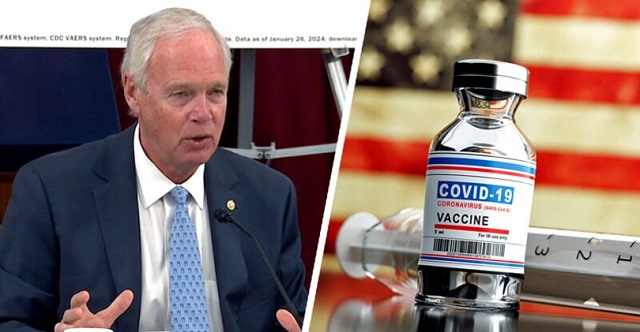Alberta
Larger outdoor gatherings, indoor seating at restaurants – gyms, theatres, museums, libraries allowed to open Thursday
Stage 2 of Open for Summer Plan begins June 10
Alberta will take a big step towards safely returning to normal as fitness centres, libraries and movie theatres reopen and large outdoor gatherings resume.
Beginning June 10, Stage 2 of the Open for Summer Plan will take effect, two weeks after 60 per cent of Albertans age 12-plus received at least one dose of vaccine and with COVID-19 hospitalizations well below 500 and still falling.
“With more than 67 per cent of eligible Albertans vaccinated with a first dose, a fully reopened Alberta is within our sight. We are putting the worst of this pandemic behind us for good and moving into a bright summer and an even brighter future. If you haven’t booked your appointment yet, please arrange to get your first dose today so we can be fully open for summer.”
“I am pleased that we continue to strike a safe balance between easing restrictions and preventing the spread of COVID-19. Together, we can continue to keep transmission low as we reopen our province.”
“We continue to be able to reopen thanks to Albertans who protect each other every day. We can keep up this progress if Albertans continue to book their first and second-dose appointments and follow public measures, such as masking, maintaining a safe distance and staying home when feeling even slightly unwell.”
Officials will continue to monitor the progress of Alberta’s vaccine rollout while keeping a close eye on hospitalization numbers and COVID-19 transmission in the province.
Restrictions eased in Stage 2 of the Open for Summer Plan, effective June 10
- Outdoor social gatherings increase to 20 people, with distancing.
- Indoor and outdoor wedding ceremonies may occur with up to 20 attendees. Receptions are permitted outdoors.
- Indoor and outdoor funeral services remain unchanged with up to 20 people permitted. Receptions are permitted outdoors.
- Restaurants may seat tables with up to six people, indoors or outdoors.
- Dining parties are no longer restricted to households only.
- Physical distancing and other restrictions still apply.
- Retail capacity increases to one-third of fire code occupancy.
- Capacity for places of worship increases to one-third of fire code occupancy.
- Gyms and other indoor fitness facilities open for solo and drop-in activities with three-metre distancing between participants and fitness classes may resume with three-metre distancing.
- Indoor settings may open with up to one-third of fire code occupancy, including indoor recreation centres. This includes arenas, cinemas, theatres, museums, art galleries and libraries.
- Indoor and outdoor youth and adult sports resume.
- Youth activities, such as day camps, overnight camps and play centres, may resume.
- Personal and wellness services can resume walk-in services.
- Post-secondary institutions can resume in-person learning.
- The work-from-home order is lifted but still recommended.
- Outdoor fixed seating facilities (e.g., grandstands) can open with one-third seated capacity.
- Public outdoor gatherings increase to 150 people (e.g., concerts/festivals).
Indoor masking and distancing requirements remain in place throughout Stage 2. Some restrictions continue to apply to activities within each step.
Stage 3 is expected to begin in late June or early July. This is dependent on all Albertans continuing to get vaccinated and following the public health measures in place.
Albertans can track the province’s vaccination progress on alberta.ca.
Alberta’s government is responding to the COVID-19 pandemic by protecting lives and livelihoods with precise measures to bend the curve, sustain small businesses and protect Alberta’s health-care system.
Alberta
Housing in Calgary and Edmonton remains expensive but more affordable than other cities

From the Fraser Institute
By Tegan Hill and Austin Thompson
In cities across the country, modest homes have become unaffordable for typical families. Calgary and Edmonton have not been immune to this trend, but they’ve weathered it better than most—largely by making it easier to build homes.
Specifically, faster permit approvals, lower municipal fees and fewer restrictions on homebuilders have helped both cities maintain an affordability edge in an era of runaway prices. To preserve that edge, they must stick with—and strengthen—their pro-growth approach.
First, the bad news. Buying a home remains a formidable challenge for many families in Calgary and Edmonton.
For example, in 2023 (the latest year of available data), a typical family earning the local median after-tax income—$73,420 in Calgary and $70,650 in Edmonton—had to save the equivalent of 17.5 months of income in Calgary ($107,300) or 12.5 months in Edmonton ($73,820) for a 20 per cent down payment on a typical home (single-detached house, semi-detached unit or condominium).
Even after managing such a substantial down payment, the financial strain would continue. Mortgage payments on the remaining 80 per cent of the home’s price would have required a large—and financially risky—share of the family’s after-tax income: 45.1 per cent in Calgary (about $2,757 per month) and 32.2 per cent in Edmonton (about $1,897 per month).
Clearly, unless the typical family already owns property or receives help from family, buying a typical home is extremely challenging. And yet, housing in Calgary and Edmonton remains far more affordable than in most other Canadian cities.
In 2023, out of 36 major Canadian cities, Edmonton and Calgary ranked 8th and 14th, respectively, for housing affordability (relative to the median after-tax family income). That’s a marked improvement from a decade earlier in 2014 when Edmonton ranked 20th and Calgary ranked 30th. And from 2014 to 2023, Edmonton was one of only four Canadian cities where median after-tax family income grew faster than the price of a typical home (in Calgary, home prices rose faster than incomes but by much less than in most Canadian cities). As a result, in 2023 typical homes in Edmonton cost about half as much (again, relative to the local median after-tax family income) as in mid-sized cities such as Windsor and Kelowna—and roughly one-third as much as in Toronto and Vancouver.
To be clear, much of Calgary and Edmonton’s improved rank in affordability is due to other cities becoming less and less affordable. Indeed, mortgage payments (as a share of local after-tax median income) also increased since 2014 in both Calgary and Edmonton.
But the relative success of Alberta’s two largest cities shows what’s possible when you prioritize homebuilding. Their approach—lower municipal fees, faster permit approvals and fewer building restrictions—has made it easier to build homes and helped contain costs for homebuyers. In fact, homebuilding has been accelerating in Calgary and Edmonton, in contrast to a sharp contraction in Vancouver and Toronto. That’s a boon to Albertans who’ve been spared the worst excesses of the national housing crisis. It’s also a demographic and economic boost for the province as residents from across Canada move to Alberta to take advantage of the housing market—in stark contrast to the experience of British Columbia and Ontario, which are hemorrhaging residents.
Alberta’s big cities have shown that when governments let homebuilders build, families benefit. To keep that advantage, policymakers in Calgary and Edmonton must stay the course.
Alberta
Danielle Smith slams Skate Canada for stopping events in Alberta over ban on men in women’s sports

From LifeSiteNews
The Alberta premier has denounced Skate Canada as ‘disgraceful’ for refusing to host events in the province because of a ban on ‘transgender’ men in women’s sports.
Alberta Premier Danielle Smith has demanded an apology after Skate Canada refused to continue holding events in Alberta.
In a December 16 post on X, Smith denounced Skate Canada’s recent decision to stop holding competitions in Alberta due to a provincial law keeping gender-confused men from competing in women’s sports.
“Women and girls have the right to play competitive sports in a safe and fair environment against other biological females,” Smith declared. “This view is held by a vast majority of Albertans and Canadians. It is also common sense and common decency.”
Women and girls have the right to play competitive sports in a safe and fair environment against other biological females.
This view is held by a vast majority of Albertans and Canadians. It is also common sense and common decency.
Skate Canada‘s refusal to hold events in… pic.twitter.com/n4vbkTx6B0
— Danielle Smith (@ABDanielleSmith) December 16, 2025
“Skate Canada‘s refusal to hold events in Alberta because we choose to protect women and girls in sport is disgraceful,” she declared.
“We expect they will apologize and adjust their policies once they realize they are not only compromising the fairness and safety of their athletes, but are also offside with the international community, including the International Olympic Committee, which is moving in the same direction as Alberta,” Smith continued.
Earlier this week, Skate Canada announced their decision in a statement to CBC News, saying, “Following a careful assessment of Alberta’s Fairness and Safety in Sport Act, Skate Canada has determined that we are unable to host events in the province while maintaining our national standards for safe and inclusive sport.”
Under Alberta’s Fairness and Safety in Sport Act, passed last December, biological men who claim to be women are prevented from competing in women’s sports.
Notably, Skate Canada’s statement failed to address safety and fairness concerns for women who are forced to compete against stronger, and sometimes violent, male competitors who claim to be women.
Under their 2023 policy, Skate Canada states “skaters in domestic events sanctioned by Skate Canada who identify as trans are able to participate in the gender category in which they identify.”
While Skate Canada maintains that gender-confused men should compete against women, the International Olympic Committee is reportedly moving to ban gender-confused men from women’s Olympic sports.
The move comes after studies have repeatedly revealed what almost everyone already knew was true, namely that males have a considerable innate advantage over women in athletics.
Indeed, a recent study published in Sports Medicine found that a year of “transgender” hormone drugs results in “very modest changes” in the inherent strength advantages of men.
Additionally, male athletes competing in women’s sports are known to be violent, especially toward female athletes who oppose their dominance in women’s sports.
Last August, Albertan male powerlifter “Anne” Andres was suspended for six months after a slew of death threats and harassments against his female competitors.
In February, Andres ranted about why men should be able to compete in women’s competitions, calling for “the Ontario lifter” who opposes this, apparently referring to powerlifter April Hutchinson, to “die painfully.”
Interestingly, while Andres was suspended for six months for issuing death threats, Hutchinson was suspended for two years after publicly condemning him for stealing victories from women and then mocking his female competitors on social media. Her suspension was later reduced to a year.
-

 Alberta2 days ago
Alberta2 days agoDanielle Smith slams Skate Canada for stopping events in Alberta over ban on men in women’s sports
-

 International1 day ago
International1 day agoTOTAL AND COMPLETE BLOCKADE: Trump cuts off Venezuela’s oil lifeline
-

 Crime2 days ago
Crime2 days agoThe Uncomfortable Demographics of Islamist Bloodshed—and Why “Islamophobia” Deflection Increases the Threat
-

 COVID-191 day ago
COVID-191 day agoSenator Demands Docs After ‘Blockbuster’ FDA Memo Links Child Deaths To COVID Vaccine
-

 Business17 hours ago
Business17 hours agoCanada Hits the Brakes on Population
-

 COVID-191 day ago
COVID-191 day agoChina Retaliates Against Missouri With $50 Billion Lawsuit In Escalating Covid Battle
-

 Energy2 days ago
Energy2 days agoLiberals Twisted Themselves Into Pretzels Over Their Own Pipeline MOU
-

 International2 days ago
International2 days agoBondi Beach Shows Why Self-Defense Is a Vital Right






